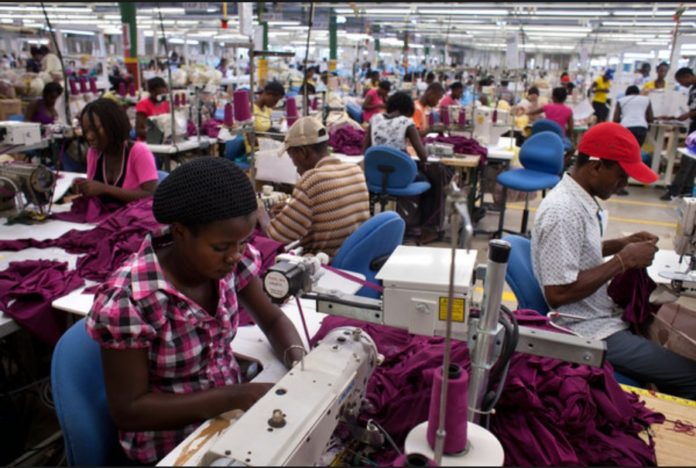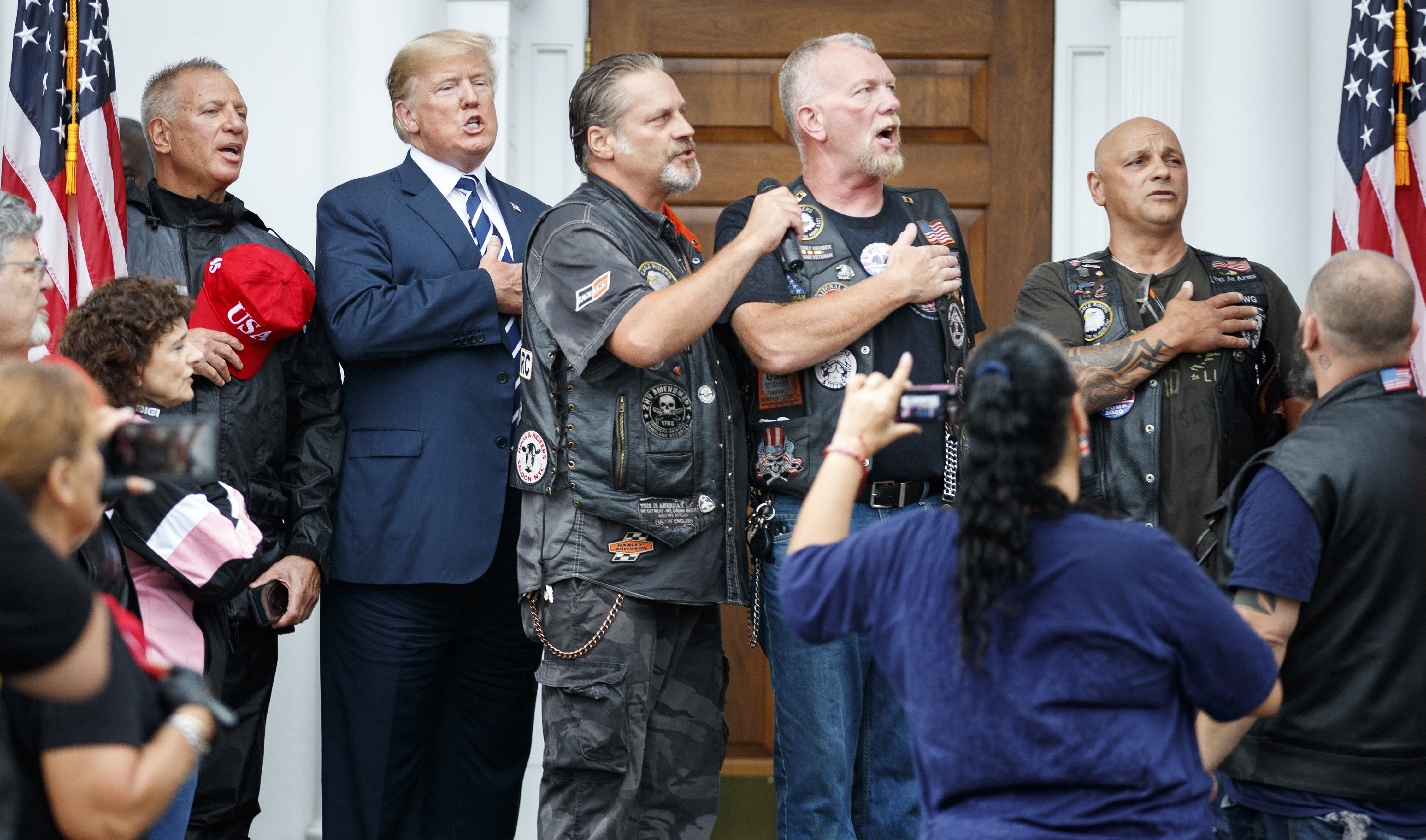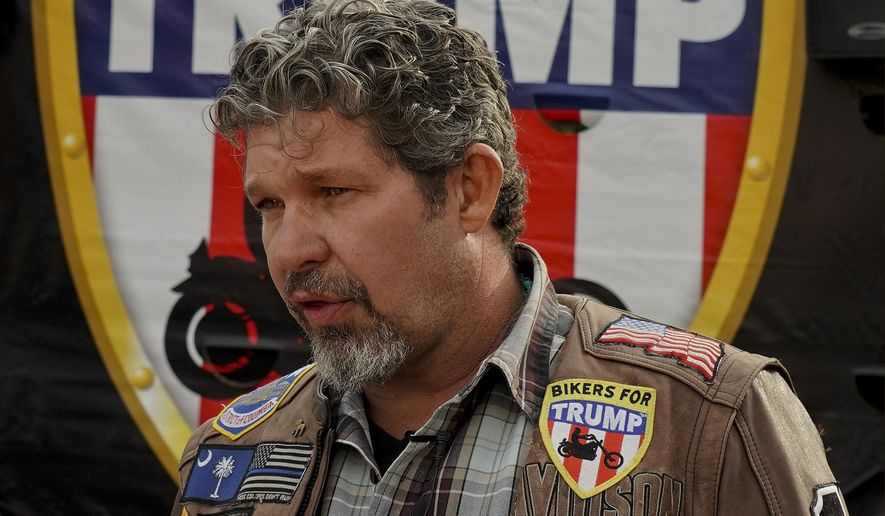
Despite his protectionist posturing, the cartoon capitalist U.S. president can’t escape capitalist economic laws, particularly the cardinal two: capitalists will always pursue maximum profit and cheaper labor.
Purporting to “Make America Great Again,” Donald Trump has posed as a defender of U.S. manufacturing jobs by slapping tariffs on a host of U.S. imports.
Ironically, Trump’s White House silverware, and even his “Trump 2020″ campaign banners, are made in China, according to recent reports. Two years ago, the Washington Post found that many Trump businesses use cheap labor in at least 12 other countries.
It turns out that his boosters in “Bikers for Trump” are as hypocritical as their hero.

Chris Cox, the South Carolinian founder of the group which has demonstrated and rallied for Trump since his campaign, is enraged that Milwaukee-based motorcycle-maker Harley-Davidson is moving to Europe the production of bikes it sells there. Having touted itself as a “Made in America” brand, Harley-Davidson decided to start European production after Trump announced stiff tariffs on Chinese aluminum and steel imports to the U.S.. In response, “Bikers for Trump” is organizing a boycott of Harley-Davidson.
But at this month’s 78th annual 10-day motorcycle rally in Sturgis, South Dakota, a reporter for the New York Times asked Cox why the “Bikers for Trump” T-shirts he was selling for $20 outside his RV were made in Haiti.
“If I get a T-shirt made in the USA, it’s going to cost about $8 more,” Cox replied. “I looked far and wide to try to get a shirt made in America, it’s just they get you, they gouge you.”
I looked far and wide to try to get a shirt made in America, it’s just they get you, they gouge you.
This is because the U.S. federal minimum wage is $7.25 an hour, while Haiti’s official minimum wage in the assembly industries is 350 gourdes ($5.23) per day, about $.65 an hour. This wage difference between the U.S. and Haiti (along with other South American and Caribbean nations) is why many people seek to enter the U.S. without documents in search of work and why Trump plans to build a wall along the U.S./Mexico border.
U.S. and Canadian clothing giants like Gildan, Fruit of the Loom, Hanes, Levi’s, and Old Navy manufacture garments in three Haitian assembly parks: SONAPI (Port-au-Prince), CODEVI (Fort Liberté), and CARACOL (Trou du Nord). In the year ending November 2015, some 41,200 workers in the sweatshops of these “free trade zones” (meaning the companies pay no import or export taxes) produced some $896 million in clothing. Today, almost three years later, it’s even more.
Trump and the textile corporations want freedom for the circulation of their capital and commodities. That is, they want to invest abroad without any restrictions on the repatriation of profits and to import and export without any quotas or taxes.
But they don’t want to grant similar freedom to labor (what Marx called variable capital) to freely move across borders. Workers have to stay put, where there are starvation wages.
Ironically, a large number of Trump’s partisans and “Bikers for Trump” are from the U.S. southeast, from which U.S. textile factories “ran away” in the 1970s and 1980s for cheap labor in Haiti and other low-wage nations (see the 1983 documentary Bitter Cane on Vimeo). The unemployment and wage stagnation that cause them to see a savior in Trump results from inexorable capitalist laws to which they too are now bowing.

Today, Cox is an artist who carves wood with a chain-saw and hawks Haitian-made T-Shirts to fellow motorcycle enthusiasts. Three or four decades ago, he might have well been working in one of the many textile factories that were based in South Carolina, North Carolina, and Georgia.
Trump’s anti-immigrant rhetoric and grand-standing tariffs will not bring back those lost jobs. Despite President Trump’s support, the “Bikers for Trump” rantings and boycott against Harley-Davidson will not stop its off-shoring to Europe.
The greatest irony is that most of the “Bikers for Trump” are capitalism’s victims: underpaid/unemployed workers and war veterans. Trump is their true enemy, feeding them lies and using them as props to implement his racist, demagogic policies. Meanwhile, “Bikers for Trump” see Haitian workers, and Haitian immigrants, as their “job stealing” enemy, instead of their ally. Perhaps Chris Cox and his group’s membership will see the light when they figure out who is really gouging them.









